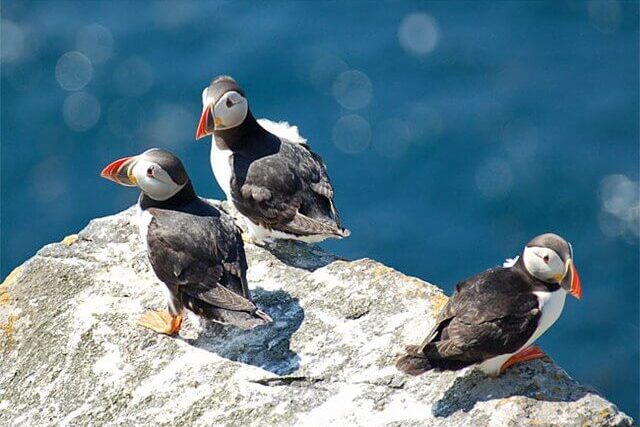
A concerning revelation has emerged from the latest assessment of Europe’s bird species, underscoring the dire state of the continent’s nature. A
ccording to a study published in the peer-reviewed journal Bird Conservation International, conducted by researchers on behalf of BirdLife International and published by Cambridge University Press, nearly four out of every ten bird species in Europe are now of conservation concern. This distressing statistic includes 14% of species that are of global concern, emphasising the severity of the situation.
This alarming report comes in the wake of the European Parliament’s vote in favour of the Nature Restoration Law and the EU Green Deal, which aim to legally compel the 27 EU member countries to restore nature both on land and at sea. BirdLife International pointed out the presence of an “unprecedented disinformation campaign,” spearheaded by conservative and right-wing politicians, as well as influential agricultural and fisheries lobbies, which sought to thwart the legislation.
Despite these challenges, the legislation narrowly passed in the European Parliament, although it does not mandate the creation of new protected areas within the EU.
Against this backdrop, the article titled “Birds in Europe 4: the fourth assessment of Species of European Conservation Concern” emphasises the urgent need for comprehensive restoration legislation. It also provides clear priorities to guide national restoration plans aimed at halting the decline of threatened bird species, encompassing various categories such as farmland and steppe birds, ducks, waders, raptors, seabirds, and long-distance migrants.
This latest assessment builds upon three previous evaluations of the population status of all naturally occurring wild bird species in Europe conducted in 1994, 2004, and 2017. Of the 546 species evaluated in the 2023 study, a staggering 38%, totaling 207 species, qualify as Species of European Conservation Concern (SPECs).
The study reveals an alarming trend: the number and proportion of species of global concern have tripled, surging from 24 (5%) in 1994 to 74 (14%) in 2023. This disturbing shift indicates an escalation and intensification of threats, resulting in iconic birds like the Atlantic Puffin and the European Turtle-dove being categorized as species of global conservation concern in recent years.
The overall proportion of SPECs has remained relatively consistent across all four assessments, fluctuating between 38% and 43%. SPECs are dispersed across Europe, making it a shared responsibility for every country to contribute to their conservation efforts. Specific regions, including parts of Iberia, Turkey, the Caucasus, European Russia, and various coastal areas, stand out as “hotspots” for bird conservation, harbouring a particularly high number of SPECs and warranting special attention and conservation efforts.
——————————————————————————
At Natural World Fund, we are passionate about stopping the decline in our wildlife.
The decline in our wildlife is shocking and frightening. Without much more support, many of the animals we know and love will continue in their decline towards extinction.
When you help to restore a patch of degraded land through rewilding to forests, meadows, or wetlands, you have a massive impact on the biodiversity at a local level. You give animals a home and food that they otherwise would not have had, and it has a positive snowball effect on the food chain.
We are convinced that this is much better for the UK than growing lots of fast-growing coniferous trees, solely to remove carbon, that don’t actually help our animals to thrive.
This is why we stand for restoring nature in the UK through responsible rewilding. For us, it is the right thing to do. Let’s do what’s right for nature!
Donate today at https://naturalworldfund.com/ and join in the solution!

